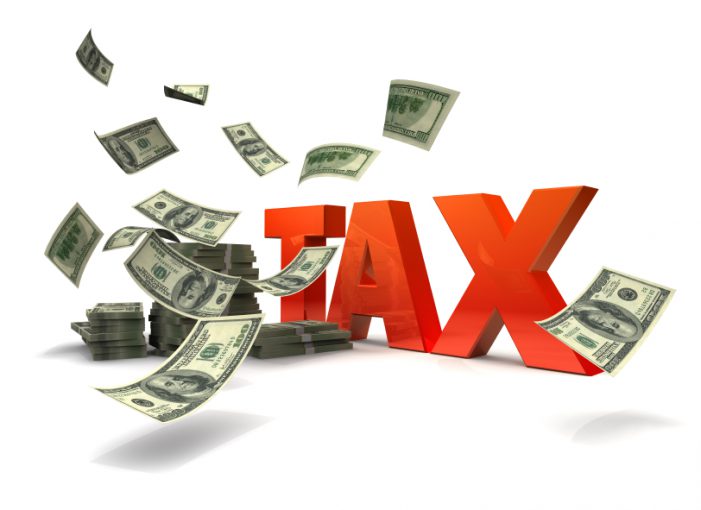By Jim Saunders, The News Service of Florida
TALLAHASSEE — With lawmakers preparing to craft a new state budget, economists estimated Friday that Florida will collect nearly $4 billion more in general-revenue taxes than had been expected over two years.
The increased estimates come after federal stimulus money has helped fuel consumer spending and as the state’s economy has bounced back during the COVID-19 pandemic. But the economists warned of a slowing that could occur because of the end of stimulus money and anticipated interest-rate hikes that will affect the housing market.
Nevertheless, the new estimates were good news for lawmakers, who will negotiate a budget in the coming weeks for the 2022-2023 fiscal year, which will start July 1. Senate President Wilton Simpson, R-Trilby, issued a statement Friday that alluded to priorities he outlined during the Jan. 11 opening of the legislative session, such as raising wages for low-paid state workers.
“With additional revenues coming in and a substantial amount of reserves, our state remains in a lot better shape than we ever thought possible,” Simpson said. “We still have some challenges ahead — as I mentioned during my opening day comments — (and) raising the minimum wage for both state workers and those who contract to perform critical services is going to put a lot of recurring pressure on nearly every area of our budget, particularly in the health care and education silos.”
General revenue, which is made up of such things as sales taxes, corporate-income taxes and documentary-stamp taxes, plays a critical role in funding education, health care and prisons. A panel of economists, known as the Revenue Estimating Conference, meets periodically to update estimates, which are then used by lawmakers in making budget decisions.
The revised numbers Friday showed the state collecting about $3.29 billion more in general revenue this fiscal year than had been estimated in an August forecast. The numbers also indicated the state would collect $704.3 million more during the 2022-2023 fiscal year than previously expected.
Much of the increased estimates stemmed from sales-tax collections.
Because the current fiscal year is more than half finished — and the budget has long been set — higher-than-expected revenues for 2021-2022 will effectively be carried forward into next year.
The state has repeatedly topped monthly revenue projections since the August estimate was released. But the economists grappled Friday with estimates for the coming months and year because of issues involving the end of federal stimulus money and higher interest rates.
Amy Baker, coordinator of the Legislature’s Office of Economic & Demographic Research, repeatedly urged caution. As an example, the state has seen influxes of documentary-stamp taxes, which are collected on real-estate transactions, as the housing market boomed.
Baker warned that “huge overages” in documentary-stamp taxes will not continue as interest rates are expected to rise and dampen the housing market.
“It’s not going to continue, and where do we feel comfortable balancing the risk?” she asked at one point.
But Holger Ciupalo, who represents Gov. Ron DeSantis’ office on the panel, was more confident about revenues. He said, for example, he doesn’t expect big housing-related changes over the next two months.
“I just don’t think that precipice is imminent,” he said.


Well, Governor DeSantis, how about paying my property taxes with some of the “bump”.
It chaps my butt that I’m having to write the IRS a check this year (must not have paid “my fair share”)_while some people are getting monthly cash/tax credit payments without paying any federal tax. It is time for more, if not all, individuals to bear the primary responsibility for their actions, their needs and the needs of their children. Let the taxpayer keep his/her money. Too much money has been wasted trying to solve the problems of generational welfare recipients and criminal recidivism. It is time for some “tough love”. EBT Cards/Food Stamps sell for 50 cents on the dollar so cut EBT benefits in half. Build a giant, multi-county jail and stop releasing repeat offenders pending 5 years of legal proceedings. Get rid of EBT cards and return to using paper food stamps. Maybe get serious about welfare fraud. I told my wife if we got divorced, on paper, she would qualify for welfare and $1000.00 in monthly EBT Cards. And don’t think for a moment that a lot of people are just living together, instead of getting married, just for the welfare benefits. I wish the liberals running our area would do one thing of significance for the working man/woman that lets them keep some of their tax money/fees.
I don’t like the headline. It implies $4B/year. $2B/year isn’t clarified until the end of the first paragraph.
$2B is nothing to sneeze at. Just wish the headline better reflected reality.